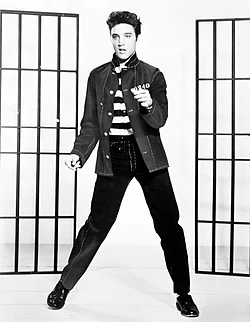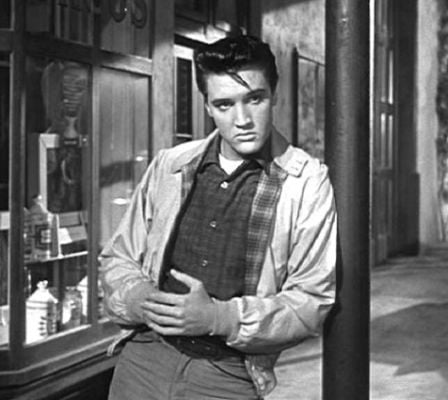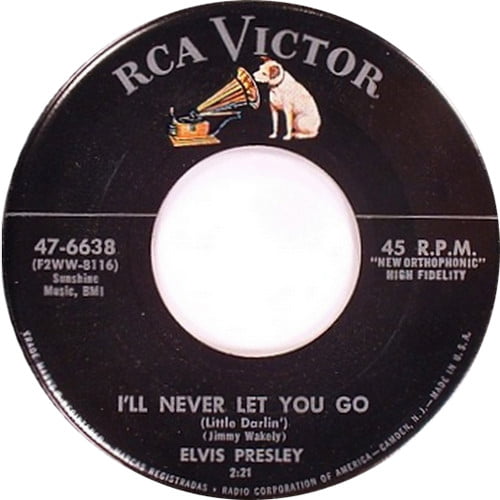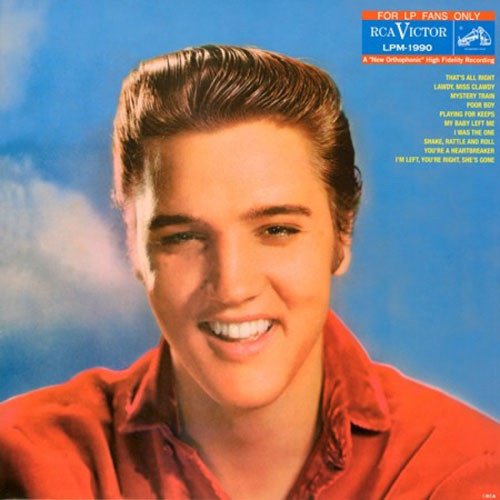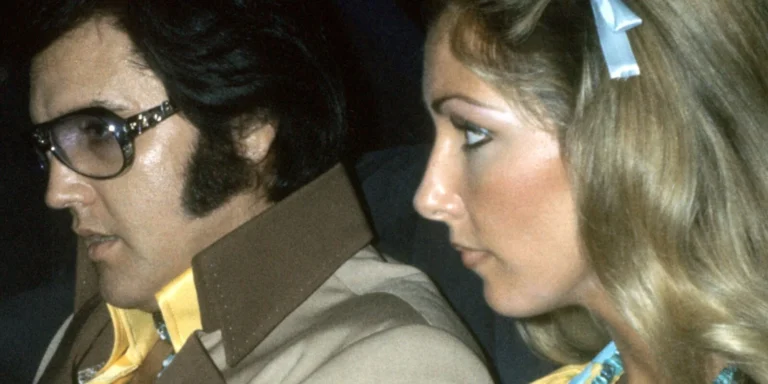
KING CREOLE
– Elvis’s best movie role –
(Part 2)
By Mariusz Ogieg?o
Trouble
However, Elvis’s imminent conscription into the army became not only a cause for concern for all his admirers but also for the creators of his next film, work on which was to start on exactly the same day as the singer was to report to the barracks, i.e. January 20 1958. ” The head of production, Frank Freeman, informed us that ‘Presley did not ask for a postponement’ and added that if the singer was unable to make the film, it would cost the studio and Mr. Wallis (producer Hal Wallis) between three hundred and three hundred and fifty thousand dollars for preparatory investments ,” The Indianapolis Star reported.
In the same text, Freeman also declared that he was willing to write a letter to the selection board in Memphis asking for Presley’s start of military service to be extended by eight weeks. So that the shooting could be completed and ” not lose such a large amount of money “.
Elvis seemed to understand Paramount’s arguments, but, as The Indianapolis Star wrote, he initially did not want to get involved in the whole matter. ” I know they invested a lot of money in this film, but I’m not going to ask for any special privileges for myself ,” he argued.
However, when the representatives of the recruitment committee decided that the postponement should be sought by the person concerned and not by the film studio, Presley changed his mind and agreed to send an appropriate letter in which he emphasized that his request was motivated only by the good of the studio and the people who helped him the beginning of his career and not his personal interest.
Finally, on December 27, the above application was approved and everyone could breathe a sigh of relief. That is, almost everyone, because while the Paramount Pictures team received sixty days to finish their film, for Elvis fans, the new deadline set by the commission – March 20, 1958, merely sounded like a postponement of the execution of the sentence.
The production that aroused so much emotion and caused such a stir was “King Creole”. A film adaptation (although in this case quite loose) of the book “A Stone For Danny Fisher” by Harold Robins, first produced in 1952 by the American publishing house Alfred A.Knopf Inc.

The mentioned literary prototype told the story of Danny Fisher. A young amateur boxer who, to support his family after the outbreak of the Great Depression, must take part in various types of fights, much to his father’s dissatisfaction. Not always legal.
However, the boy’s skills attract the attention of local gangsters who offer him huge money in exchange for losing the America’s Golden Gloves * championship . However, Danny decides to outsmart the criminals and, despite the fee he accepted from them, wins the fight (to, as we read in the book’s description, ensure fame and, more importantly, recognition from his father).
The consequences of this decision have very serious and unpleasant consequences for him.
Robins’ novel quickly attracted the attention of filmmakers and various types of creators. In October 1954, the play “A Stone For Danny Fisher” appeared on the playlists of the Downtown National Theater (almost one hundred performances were performed), directed by Francis Kane and starring Phillip Pine in the title role. A year later, in 1955, Hal B. Wallis purchased the rights to the film adaptation of the book for the amount of twenty-five thousand dollars.
At that time, however, the producer intended to cast the biggest film star of the time – James Dean – as Danny Fisher.
However, when a few weeks later, on September 30, 1955, the star of such cult productions as “East of Eden” or “Rebel Without a Cause” died in a car accident, there was a frantic search for someone who could replace him.
Initially, the choice fell on Marlon Brando, who gained enormous popularity thanks to his appearances in films such as “Wild”, “On the Waterfront” and “Guys and Dolls”.
However, when the actor expressed no interest in participating in the project, Hal Wallis and his team began looking for candidates for the role of Fisher among the then equally popular Paul Newman, Tony Curtis and Ben Gazzara. At that time, Elvis Presley’s name began to be mentioned more and more often among popular screen rebels.

The latter’s involvement, however, involved adding at least a few songs to the script (which was apparently insisted on by Colonel Parker) and, consequently, introducing many significant changes to the plot. However, it guaranteed publicity and financial success.
And this was enough to take his candidacy seriously.
As a result, before the end of 1956, an idea arose to move the action of the film, which from then on had the working title “Sing, You Sinners”, after one of the songs written for it, from Brooklyn, New York to one of the districts. New Orleans – the cradle of jazz, and change the main character from a boxer into a singer.
- The term Golden Gloves refers to both national boxing competitions and local amateur tournaments. Golden Gloves is also the name of an organization promoting annual amateur boxing competitions in the United States.
Information provided by EP Promised Land (Poland), Mariusz Ogieg?o http://www.elvispromisedland.pl/
If you want to visit more articles about the life of Elvis Presley, enter the following Elvis Radio 24h link: https://elvisradio24h.com/tag/articles Thanks TCB ?
We remind you that you can also listen to Elvis Radio 24 hours on your mobile phone by downloading our free applications for Android in the Play Store ? https://play.google.com/store/apps/details?id=com.icreo.elvisradio24h1, and for iPhone in your Apple Store ? https://apps.apple.com/app/elvis-radio-24h/id6444257119. Thank you very much!!…
